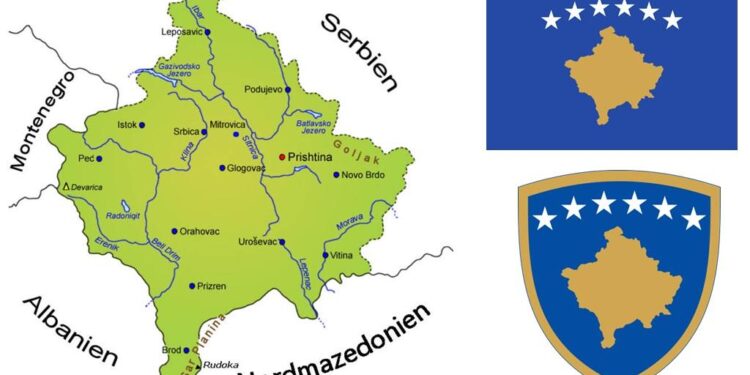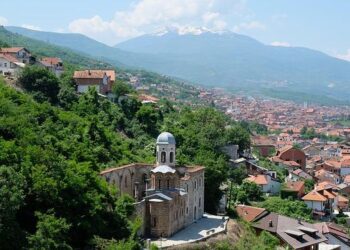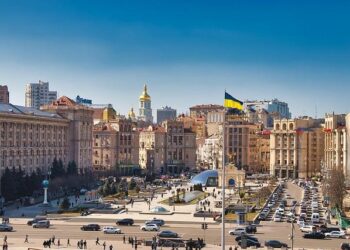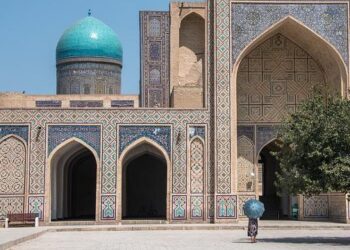Kosovo, a region marked by its complex history and diverse ethnic landscape, remains a focal point of political debate and international interest. The quest for autonomy and the intricate interplay of ethnic identities have shaped its trajectory from a province within Serbia to a self-declared independent state. This article delves into the nuanced dynamics of Kosovo’s autonomy movements, the ethnic composition that fuels its political landscape, and the ongoing challenges faced in the pursuit of stability and recognition. Drawing on insights from Britannica, we explore how historical legacies and contemporary politics continue to influence Kosovo’s path forward.
Kosovo’s Quest for Autonomy Facing Regional and International Challenges
Kosovo’s journey toward securing recognized autonomy is deeply intertwined with longstanding ethnic complexities and shifting political currents across the Balkans. The region’s predominantly Albanian population seeks to solidify governance structures that reflect their identity and aspirations, while facing resistance from Serbia and other stakeholders reluctant to endorse full sovereignty. This tension has fostered an environment where diplomatic efforts, regional alliances, and international mediation play critical roles in shaping Kosovo’s status. Efforts to gain wider international recognition continue to be hampered by geopolitical considerations, involving key players like the European Union, Russia, and the United States, each wielding influence over the dialogue and future arrangements.
Key challenges lie in navigating a landscape where ethnic coexistence and political stability are fragile and frequently contested. Internally, Kosovo confronts hurdles such as institutional capacity building and economic development, which are essential for sustainable autonomy. On the international stage, disparities in recognition impact Kosovo’s ability to participate fully in global organizations and economic partnerships. The following table highlights some of the principal actors and their stances on Kosovo’s autonomy:
| Actor | Position on Kosovo | Influence |
|---|---|---|
| Serbia | Opposes Independence | High – Regional Stability |
| European Union | Supports Dialogue | Medium – Mediator Role |
| United States | Supports Independence | High – Diplomatic Backing |
| Russia | Opposes Independence | High – Veto Power in UN |
Ethnic Dynamics Shaping Political Stability and Social Cohesion in Kosovo
Kosovo’s political landscape is profoundly influenced by the intricate interplay of its ethnic groups, primarily Albanians, Serbs, and other minorities. The presence of a majority Albanian population alongside significant Serbian communities creates a dynamic environment where power-sharing and autonomy arrangements become crucial for maintaining political stability. Efforts to establish a governance model that respects these ethnic distinctions have been met with varying degrees of success, often hindered by historical grievances and disputed territorial claims. Key factors shaping this landscape include:
- Decentralization policies aimed at empowering minority municipalities
- International mediation promoting inter-ethnic dialogue
- Legal frameworks safeguarding minority rights within Kosovo’s constitution
Social cohesion remains fragile, with community interactions often segregated along ethnic lines, complicating reconciliation and nation-building efforts. Economic disparities and divergent political allegiances exacerbate tensions, yet grassroots initiatives and civil society programs are working steadily to bridge divides. The balancing act between autonomy and centralized authority continues to define Kosovo’s progress, where sustainable peace depends on inclusive governance that acknowledges diversity as a source of strength rather than division.
| Ethnic Group | Approximate Population % | Autonomy Level | |||
|---|---|---|---|---|---|
| Albanians | 92% | Central Authority Control | |||
| Serbs | 5% | | Ethnic Group | Approximate Population % | Autonomy Level | |
| Albanians | 92% | Central Authority Control | |||
| Serbs | 5% | High Autonomy in Northern Municipalities | |||
| Other Minorities | 3% | Varied; Some Local Autonomy |
If you want, I can also help with any additional content or formatting!
Policy Recommendations for Inclusive Governance and Sustainable Peace in Kosovo
To foster meaningful progress in Kosovo’s fragile political landscape, a multidimensional approach emphasizing inclusive governance is essential. Policymakers are urged to prioritize the integration of all ethnic communities, particularly the Serb minority, into decision-making processes at both local and national levels. Key actions include:
- Establishing autonomous administrative zones with guaranteed minority representation
- Implementing transparent mechanisms for power-sharing and conflict resolution
- Promoting civic education focused on multiculturalism and mutual respect
Such measures not only enhance political participation but serve as a foundation for sustainable peace by addressing deep-rooted ethnic divisions. Complementing these efforts, economic development initiatives targeting underserved communities must be integrated to reduce inequality and build trust across ethnic lines.
| Policy Focus | Recommended Action | Expected Impact |
|---|---|---|
| Ethnic Inclusion | Reserved seats for minorities | Improved trust & dialogue |
| Economic Empowerment | Targeted investment zones | Reduced poverty & grievances |
| Conflict Resolution | Community dialogue platforms | De-escalation of tensions |
| Policy Focus | Recommended Action | Expected Impact |
|---|---|---|
| Ethnic Inclusion | Reserved seats for minorities | Improved trust & dialogue |
| Economic Empowerment | Targeted investment zones | Reduced poverty & grievances |
| Conflict Resolution | Wrapping Up As Kosovo continues to navigate the complex interplay of autonomy, ethnicity, and politics, its journey remains a focal point in Balkan and international affairs. Understanding the region’s historical context and ongoing challenges is crucial for grasping the broader implications of its quest for stability and recognition. As developments unfold, Kosovo’s story will undoubtedly remain a critical chapter in the evolving political landscape of Southeast Europe. ADVERTISEMENT |















